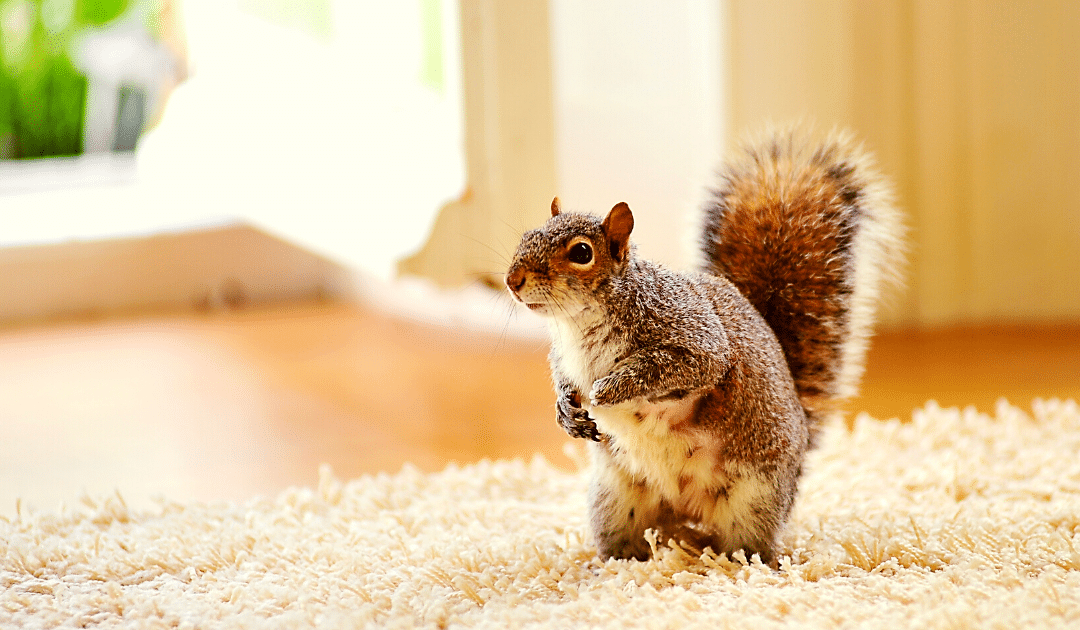
by California Casualty | Homeowners Insurance Info |
Although wildlife can be cute from a distance, that doesn’t mean you want them moving in. Besides general annoyance, animals that become unwitting roommates can bring costly damage and risk of disease.
The first step in staying critter-free is to understand how and why they may be attracted to your home. Usually, it’s to secure safety, warmth, and proximity to food.
Here are the eight most common “intruders,” their methods for getting in, and some tips for keeping them out.
Squirrels
Did you know that squirrels’ teeth never stop growing? To keep them “trimmed,” squirrels must constantly chew. If they get into your home, it’s open season: they will gnaw on anything that isn’t metal. If a squirrel does make it in, you’ll probably hear it before you see it. Listen for gnawing sounds; also look for wood chips in unexpected places, water damage on ceilings and walls, damage to the roof or beams, and droppings in the attic.
Raccoons
Anyone who’s had raccoons in their yard knows their penchant for destruction. Tipped-over garbage bins, dug-up gardens, and pilfered animal feed. But the real damage comes when they enter your home. They can destroy insulation, leave urine and feces everywhere, and gnaw electrical wires. Make note that female raccoons start scouting denning locations to give birth during late winter.
Rodents
Especially during winter months, mice and rats seek shelter so they can nest and forage for food. They can carry various diseases which can be transmitted through scratches, bites, and droppings. In addition to the hygiene issue, they can chew through wiring, wood, pipes, and brickwork. They even put your home at risk of fire due to sparks from chewed wires.
Skunks
People and pets are afraid of skunks for good reason – their powerful, redolent smell can linger for months. So focus on skunk prevention rather than removal. Often lured by food or cozy-looking spots under porches and decks, skunks can not only damage your home but also injure your pets. These critters are notorious diggers and burrowers, who can create holes in your lawn, garden, and under your home. They also like to access crawl spaces by tearing away their protective screens.
Birds
Birds start looking for shelter to build their nests in springtime. If they choose your home as theirs, they’ll probably go for your chimney, deck, attic, shed, or soffit. They may even nest in grills, vents, or elsewhere in your yard. They can cause structural damage, create a mess of debris, and leave unhygienic droppings. The damage is made worse when birds nest together.
Bats
Attics are a favorite place for bats to roost. One or two aren’t usually an issue, but if you suddenly have a colony on your hands, you have a problem. They can chew on wires and walls and destroy insulation. Their droppings cause an unpleasant odor and may cause histoplasmosis in humans.
Groundhogs
These furry critters will not only ransack your garden but can cause considerable damage by burrowing under your home. Over time and left unabated, their tunnels can loosen and shift the ground, causing structural hazards. This most commonly happens with homes built on slab foundations.
Opossums
You really don’t want your home in an opossum’s sights. They will make a mess of your pantry and tear at your walls and insulation to collect nesting materials. They can injure your pet, steal their food, and also spread disease to your household. Their smell is a close second to raccoons. To prevent this marsupial intruder, pay close attention to your basement, attic, garage, shed, and crawl spaces – all places they tend to take up residence. They usually get in through the siding, chimney, or loose screens or vents.
Tips to Keep Wildlife Out:
-
- Make sure trash and pet food are in bins and securely closed with a tight lid and/or bungee cords or ropes.
- Seal shut any holes or open or loose entry points into your home. Check the roof, siding, foundation, exterior walls, and trim. If your deck or porch is open underneath, seal it up.
- Cover and secure compost piles; never compost meat scraps.
- Trim tree limbs that can act as “highways” to your roof.
- Keep gutters clean and free of debris.
- Install chimney caps and steel screens on vents.
- A sturdy fence that’s buried at least 18” underground and 5 ft above ground will stop animals from burrowing under and jumping over.
- Check out the options for repellants – they come in the form of chemical sprays, motion-activated sprinklers, and sound emitters (the latter can annoy pets, though).
By knowing how wildlife sizes up your home and taking precautions to safeguard it and remove temptation, you’ll be well on your way to keeping wildlife in the wild.
Wondering if your home insurance policy covers damage caused by animals? Call your California Casualty representative today!
This article is furnished by California Casualty. We specialize in providing auto and home insurance to educators, law enforcement officers, firefighters, and nurses. Get a quote at 1.866.704.8614 or www.calcas.com.
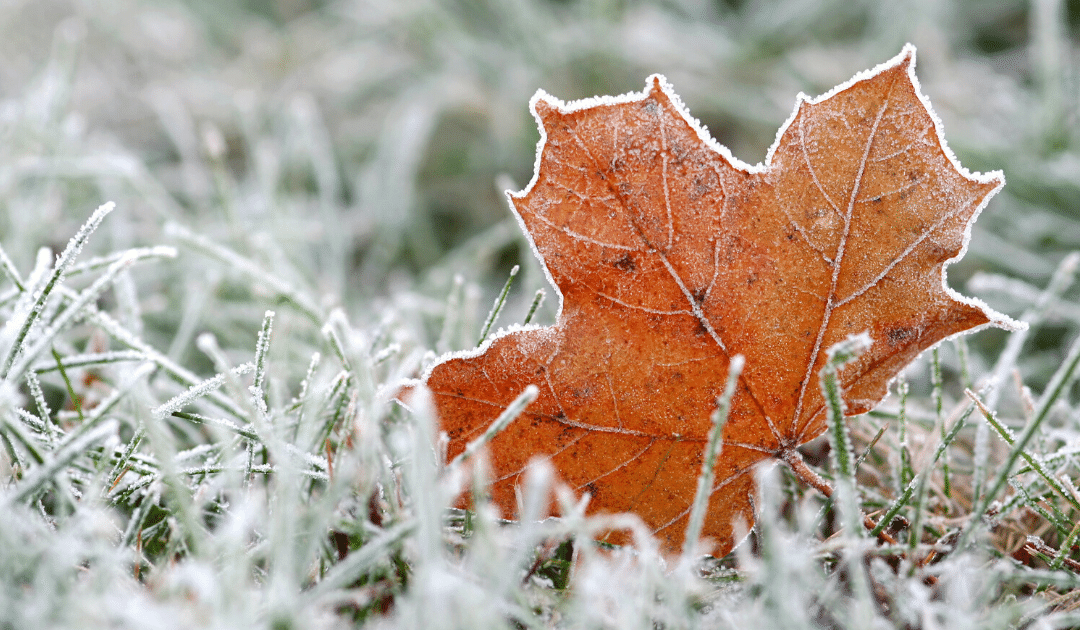
by California Casualty | Homeowners Insurance Info |
Fall is here! The leaving are changing colors and soon the temperature will drop, but is your home ready for the cooler weather?
Follow our 10 indoor and outdoor tips below to help get your house ready for the winter months ahead.
Indoor:
Use Heavy Duty Drapes – Replacing your regular curtains with thermal drapes will help keep your home nice and warm.
Insulate Windows – Caulk and seal gaps around your windows to prevent cold air from leaking in.
Check Your Heating System – Change your filters and have an HVAC contractor come out and make sure everything is running properly.
Have Your Fireplace Inspected – Have your chimney cleaned once a year by a professional before you use it. They will check for any cracks and clean any soot build-up from the previous winter season.
Test Your Detectors – With homes all sealed up for the winter, there is a much greater chance for carbon monoxide to build up in your home. Make sure all detectors have new batteries and are working properly.
Outdoor:
Check Your Roof – Before the snow and ice, make sure your roof is damage-free and there are no shingles that are missing or loose.
Add Mulch to the Landscaping – Protecting your plants and landscaping from the harsh winter weather by adding a few additional layers of mulch.
Clean Out Your Gutters – Fall leaves and debris can accumulate in your gutters and make it impossible for water, snow, and melting ice to pass through. That is why it is important to clean and clear them out a few times a year.
Trim Tree Branches – Winter storms can wreak havoc on trees, especially dead limps, which can easily fall on your home with a gust of wind or snow/ice accumulation. Trim tree branches over your home and remove dead limbs.
Prep Your Lawn and Lawn Care Equipment – Fall and Spring are the best time to seed your lawn. After, be sure to apply fertilizer with winterizer. It is also a good idea to drain gas from any mower or weed eater that you will not use until the spring.
Stay warm this cool-weather season, and for more cool weather tips, check out our Fall Preparation Tips for Your Home blog here.
This article is furnished by California Casualty. We specialize in providing auto and home insurance to educators, law enforcement officers, firefighters and nurses. Get a quote at 1.866.704.8614 or www.calcas.com.

by California Casualty | Auto Insurance Info, Homeowners Insurance Info |
If you’re like most boat owners, you probably only use your boat a few months out of the year. And after all those summer trips are done, and your boat’s cleaned up and ready for storage, you might be tempted to cancel the insurance.
After all, if your boat won’t even be on the water, why would you need coverage?
Turns out, there are some compelling reasons to keep your insurance throughout the year, not the least of which is that it can actually save you money in the long run. Here are 4 top reasons.
1. Accidents Don’t Have an Offseason
More than half of the claims are filed for accidents that occur between September and January. The majority of those are for theft, vandalism, fire, and flooding. Boats are typically unattended during this time, which increases accident risk. When you carry boat insurance, these claims are covered by comprehensive coverage, costing far less than out-of-pocket payments would for repair and replacement in the event of an insurance lapse.
2. It May Be Required
If your boat is financed by a lender, you may be obligated to carry insurance year-round. Even if you own your boat outright, some marinas may require boats on the premises to be insured.
3. Don’t Count on Your Homeowner’s Policy
Many boat owners assume that damage to their boat is covered under their homeowner’s policy. Most times this isn’t the case, as the boat would probably only be protected if damage occurred while on the covered property. And even then, a homeowner’s policy might not fully cover the damage and/or leave the owner with coverage gaps (for example, many homeowners policies have length and horsepower limits that apply to boats). Boat insurance policies are crafted to meet specific needs and protect against risks inherent to boating.
4. It Makes Financial Sense
Depending on your insurer, signing up for a full 12-month policy can make you eligible for discounts or loyalty benefits, saving you money over the long term. Also keep in mind that many insurers already adjust the off-season monthly premiums to be lower than the on-season ones, so an annual policy, in the end, does offer better protection dollar for dollar than one for just several months. And don’t forget that as your boat ages you may find it more difficult to secure insurance if you cancel your policy. Finally, if you insure your boat with the same company as your car or homeowner’s insurance, you can most likely get a multiple policy discount.
Just as with homeowners and car insurance, a policy protecting your boat against damage and liability not only provides peace of mind but is a wise financial decision. And given the risks specific to boats, choosing a year-round policy is even smarter.
This article is furnished by California Casualty, providing auto and home insurance to educators, law enforcement officers, firefighters, and nurses. Get a quote at 1.866.704.8614 or www.calcas.com.
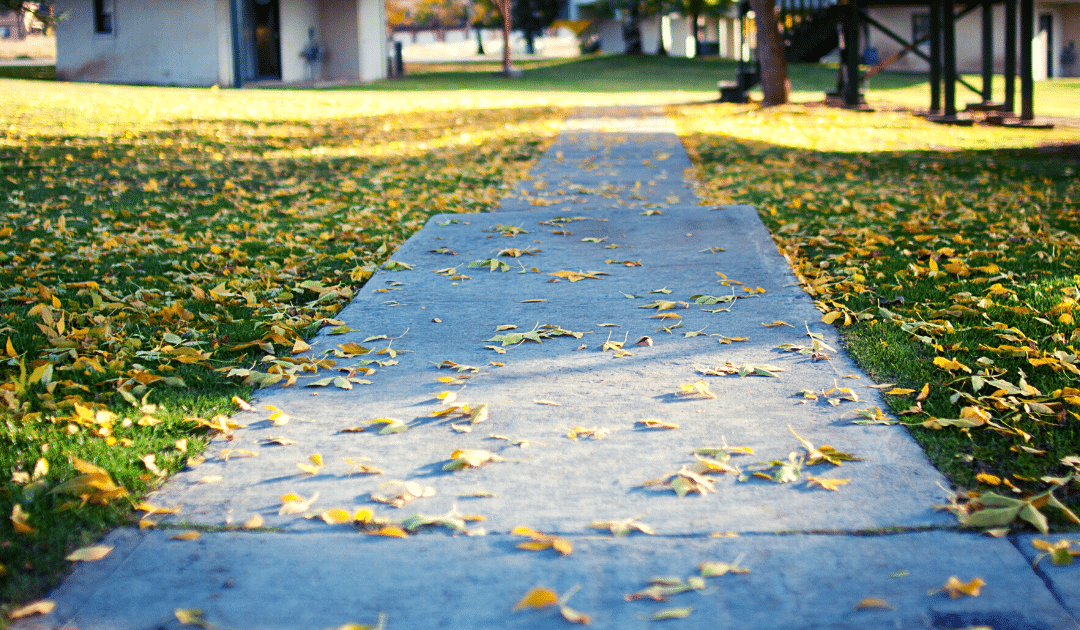
by California Casualty | Consider This, Homeowners Insurance Info |
Fall is the perfect time of year! The summer heat begins to fade, leaves don their annual colors, football games take over the weekend, and pumpkin-flavored everything hits the shelves. fall preparation
However, it also serves as a reminder, that as the days grow shorter and the leaves start to fall, now is the ideal time to look around your home and get prepared for the oncoming winter. Fall’s mild temperatures and adequate daylight provide an opportunity to check the heater, repair gutters, and add extra insulation to the attic. An early autumn storm or blizzard is no time to learn you have leaks or other problems.
The Insurance Information Institute estimates that winter-related damage causes over a billion dollars in insurance losses annually. So, enjoy the nice weather and your pumpkin spiced latte while you can. Just don’t forget to look ahead. Prevent your home from being a winter-storm statistic and make the necessary preparations to your home this fall.
Fall Preparation Checklist:
- Have your heating system checked and cleaned.
- Inspect ceilings, windows and outer walls for cracks.
- Change air filters.
- Check your pipes and plumbing.
- Inspect your roof for wear or damage and clean the gutters.
- Install weather stripping and caulk around windows and doors.
- Seal up foundation and driveway cracks.
- Check your fireplace and chimney for cracks or leaks.
Look around your deck or patio and yard. Now is the time to clean and store seasonal outdoor furniture and flower pots, drain sprinkler systems, trim trees and shrubs, fertilize lawns and mulch gardens. Before your lawnmower goes into hibernation, schedule a time to have it serviced. If your snowblower needs some TLC after its summer break, bring it in with your mower and tackle two chores at once.
During the fall it is also important to make sure your home is fire safe. Hundreds of fires break out each day during the autumn and winter months. Check your smoke and carbon monoxide detectors and make sure everything is working properly. The National Fire Protection Association warns carbon monoxide poisonings also climb during the fall and winter months.
Smoke and Carbon Monoxide Detector Preparation Checklist:
- Install smoke alarms and carbon monoxide detectors in every bedroom, outside each separate sleeping area, and on all levels of the home.
- Test all smoke and carbon monoxide detectors and replace the batteries.
- Have all heating equipment and chimneys cleaned and inspected.
- Keep all flammable material at least three feet from heat sources.
- Check fire extinguishers. Replace or have them serviced as needed.
- Know and practice home escape routes.
A vital preparation step for any season is to review and understand your homeowners or renters insurance policy. Make sure you know what is covered under your policy, if you need to up your coverage, or add additional coverage for the coming winter months.
This article is furnished by California Casualty. We specialize in providing auto and home insurance to educators, law enforcement officers, firefighters and nurses. Get a quote at 1.866.704.8614 or www.calcas.com.
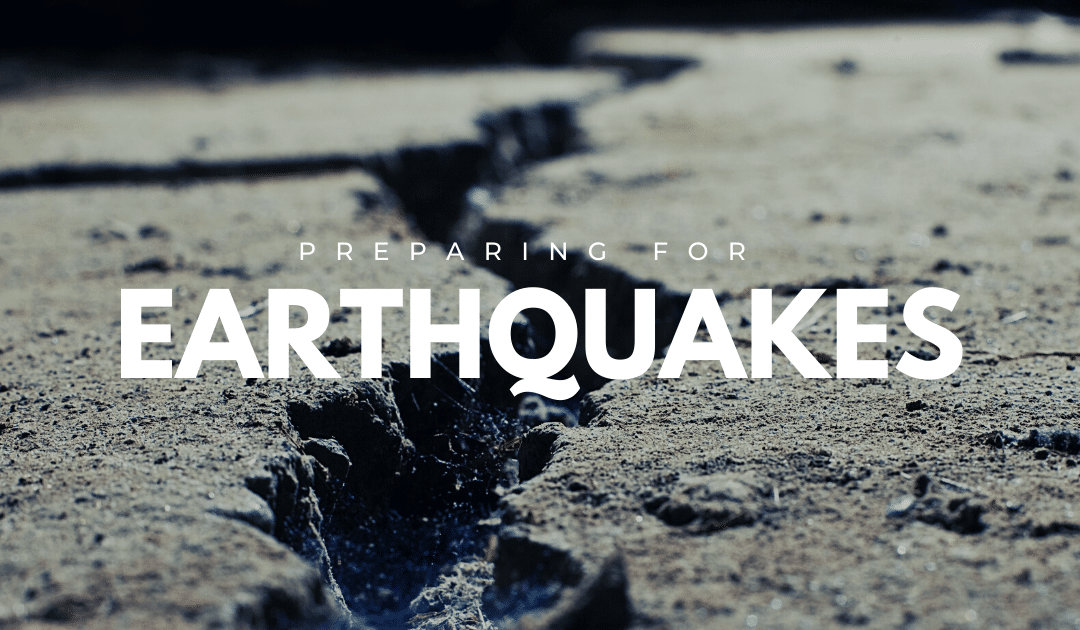
by California Casualty | Homeowners Insurance Info, Safety |
Chances are good that if an earthquake hits, you’ll be at home — especially now, when many of us are working at home due to coronavirus.
Luckily, there are simple things you can do today to safeguard your home and better protect yourself and your family before an earthquake strikes. Start with our 12 to-dos below. You’ll also find 3 top tips for what to do during a quake and, just as importantly, what not to do.
Inside Your Home
Whether it’s the kind that rolls in waves or arrives with a sudden jolt, an earthquake will surely shake your home and its contents. More people are injured by falling objects or furniture than by building damage. Make your home safer by securing and moving furniture and accessories, especially where people sit, sleep, or spend a lot of time. Pay special attention to heavy objects: move them lower to ground level and also make sure they’re not close to escape routes or doorways. Here are 12 other items to check and secure:
-
- Bookshelves – Tall bookshelves are an accident waiting to happen, as they’re unstable to begin with, and their contents can easily become airborne. Secure them to a wall stud using L-brackets and place the heaviest items on bottom shelves.
- Chemicals – If you have chemicals stored on open shelves in the garage or basement, protect them against spills by installing wood, plexiglass strips or wires to restrain them. If containers are behind cabinet doors, use latches to secure the doors.
- Display Cases – Secure these to the floor using appropriate brackets. Install safety glass if possible. Try to secure shelves inside the case as well.
- Electronics – For large electronics such as flat-screen TVs and entertainment centers, buy a “safety strap” kit, which contains straps and buckles designed for these heavy electronics.
- Hanging Objects – These are especially prone to be thrown around in a quake. Framed pictures and mirrors should be hung from closed hooks so they can’t bounce off walls. You can also use earthquake putty to secure corners. Move medium or large-sized pieces so they’re hung on studs, which is more secure being hung on drywall only. Make sure any hanging plants are well away from windows.
- HVAC Units – Anchor units using restraint brackets or seismic snubbers.
- Kitchen Cabinets – Shaking can cause cabinet doors to fly open and throw contents onto the floor. This can lead to a floor full of glass and ceramic shards – not to mention damage to countertops and walls. Secure cabinets by installing one or more of several latches: hook and eye, standard latch, pull/throwover, push latches, child-proof, or seismolatch.
- Piping – Secure all overhead pipes using brackets.
- Refrigerator – Secure refrigerators and other major appliances to wall studs using earthquake appliance straps.
- Space Heaters – These should be equipped with support legs and properly spaced angles. Learn online to DIY or hire a professional.
- Suspended AC Units – These should be braced with angles or welded to a support rod.
- Water Heater – Proper fastening involves having 2 straps that wrap completely around the unit and are screwed into studs of the wall.
What to Do During a Quake
The more you move or try to run during an earthquake, the greater chance you’ll be injured by falling or flying objects. Instead, remember to:
1. Drop to hands and knees – Do this before the earthquake knocks you down. It protects you from being thrown down and allows you to move if you need to.
2. Cover your head and neck – Get under a sturdy table or desk as soon as you can. If you can’t get to one, get next to low-lying furniture that won’t fall on you or next to an interior wall. Wherever you end up, cover your head and neck for protection.
3. Hold on to your shelter – Hold on to the table or desk (or your head and neck) until the shaking stops. If you’re under a table, be ready for it to shift as the quake rolls – and move with it.
What NOT to Do
1. Run outside – A building’s exterior walls are the most dangerous place to be during a quake. Facades, windows, and architectural details are often first to collapse or break. If you’re inside, don’t run outside, and if you’re outside, don’t run inside – crossing the building exterior puts you at risk of being injured by falling debris.
2. Stand in a doorway – It’s a long-held idea that a doorframe is the safest place to be. In modern homes, a doorframe is no safer than any other part of the house and won’t protect you from airborne or falling objects. You’re safer under a sturdy table.
3. Get in the “triangle of life” – An email that’s gone viral in the last few years offers advice counter to the long-established “Drop, Cover and Hold On” advice. The actions outlined have been discredited as potentially life-threatening by experts and their organizations.
Earthquake safety really boils down to preparation. Although you can’t control where you’ll be when one hits, you can prepare yourself and your home starting right now. Between the tips above – and our articles on what to do before and after a quake and emergency kit basics – you’ll be well on your way to pro-level preparation.
This article is furnished by California Casualty, providing auto and home insurance to educators, law enforcement officers, firefighters, and nurses. Get a quote at 1.866.704.8614 or www.calcas.com.
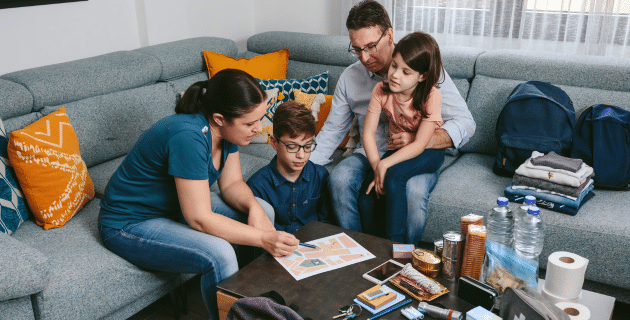
by California Casualty | Homeowners Insurance Info, Safety |
An earthquake, flood, fire, or severe storm can strike at any time — and you and your family may not be together when it does.
How will you find each other if separated? What about household members who have medical conditions? And what if your cell phones or networks are out of power?
Crafting an emergency plan before a disaster hits gives you time to discuss your family’s needs and circumstances, review possible scenarios, and decide on the best options together. Schedule a time when the whole family can participate. You may need one or two additional meetings to finalize all the details.
Here’s what you’ll need to cover:
1. Make A Plan of Action
Smart planning entails talking through a number of situations and “what-ifs.” Start by brainstorming around the following (and remember that coronavirus may affect some answers).
- What natural disasters are we most likely to experience?
- How will we receive emergency alerts and warnings?
- What are the escape or evacuation routes from our house?
- What is our shelter plan?
2. If Your Family is Separated
Re-opening across the country means parents may be going back to work and kids back to school. Are there other locations, such as after-school programs, childcare, gyms or volunteer sites that family members regularly attend? Consider those when answering the following:
- If separated during an emergency, where should we meet near our home?
- If meeting near home is impossible for some or all family members, what’s our meeting place?
- If we are separated, who is our emergency contact outside of our immediate area?
3. Specific Needs of Family Members
Remember to tailor your plan to address any particular needs of/by family members, such as:
- Medical needs including prescriptions and equipment
- Dietary needs
- Medical conditions, disabilities or functional needs, especially those requiring devices and equipment
- Language barriers or limitations
- Ages of all household members, including school-aged children
- Pets or service animals
- Religious and cultural considerations
5. Fill Out the Plan
After discussing the above, it’s time to get it all down on paper. Be sure to capture the following as well.
- All the contact information for each household member.
- Who’s responsible for what during the disaster? Tasks might include things like retrieving the disaster kit, evacuating pets, and fielding disaster updates and alerts.
- Create a personal network of friends, family or neighbors for things you might need help with.
- Make sure you have one or more out-of-town contacts for emergencies.
- Numbers for important contacts such as utilities, financial companies, childcare and caregivers, veterinarians, and insurance companies.
6. Share & Practice
During an emergency, cellular networks and wi-fi may be unreliable, and computers and phones may be lost or out of power. In these cases, having a paper copy of your family disaster plan can save precious time, minimize stress and prevent unnecessary emergencies. So, make sure each family member has a copy and carries it with them in a purse, backpack or work bag (here’s a template plan that fits in your wallet). Have regular family meetings to review the plan and practice. Finally, do a thorough review every 6 months or so, to update information or responsibilities.
7. Resources
Check out these resources to get your plan disaster-ready.
The perfect time to make a plan is right now. Getting all your family members on board and in the know sooner rather than later will ensure that you’re all ready when you need to be.
This article is furnished by California Casualty, providing auto and home insurance to educators, law enforcement officers, firefighters, and nurses. Get a quote at 1.866.704.8614 or www.calcas.com.






